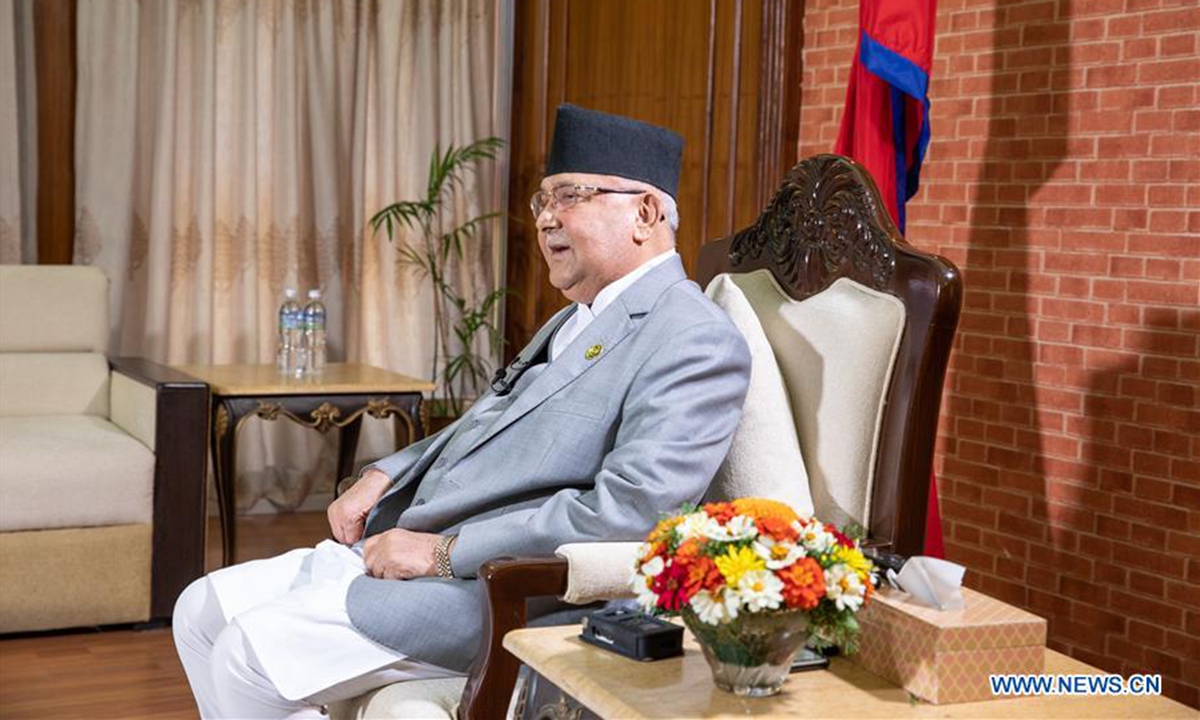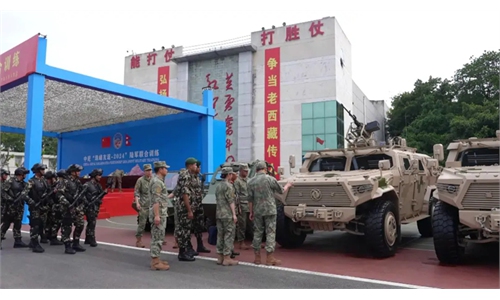Nepalese PM’s ‘break from tradition’ to first visit China worth reflection from India: expert

Nepali Prime Minister K.P. Sharma Oli File photo: Xinhua
Indian media have recently hyped Nepalese Prime Minister KP Sharma Oli's reported visit to China as a sign of strained relations between Kathmandu and New Delhi.
However, rather than lamenting the choices of a sovereign nation regarding its diplomatic engagements, this so-called "break from tradition" should prompt India to reflect on why China is increasingly welcomed among South Asian countries, a Chinese expert said.
The upcoming China visit of Oli will focus on the implementation of past agreements and accords, the prime minister's party CPN-UML said on Saturday, The Kathmandu Post reported. Preparations for the visit to China have already begun, it added.
The visit, however, has not yet been confirmed by Chinese authorities as of press time.
Oli's scheduled visit to China has drawn attention from India, as Indian media, including The Hindu, said this visit will make Oli "the first Nepali leader not to visit India on his first bilateral visit abroad after taking over."
The Hindu cited experts as saying that Oli's visit is a symptom of strain in India-Nepal ties on a number of issues, including India's objection to Chinese investment or components in India-Nepal projects, as well as Nepal's pending request for additional routes for overflight from India for newly built airports that are running into losses.
The Indian Express also published an article on November 3, calling Oli's visit a "break from tradition."
India's excessive attention on the choices of state visit made by Nepal, an independent country, not only reflects India's disregard for Nepal's sovereignty but also demonstrates India's Monroe Doctrine mentality of treating South Asian countries as its backyard, Qian Feng, director of the research department at the National Strategy Institute at Tsinghua University, told the Global Times.
Qian said Nepal's visit to China does not necessarily indicate a change in its relationship with India; cooperation with China and cooperation with India are not mutually exclusive for Nepal.
"That I am visiting China first does not mean our relation with India is not good," said Oli, the Kathmandu Post reported. "We took a position while India imposed a blockade [in 2015-16], so they were not happy. There is no reason for them to be unhappy with us [now] as we will maintain friendly, balanced and good relations with both our neighbors."
China's cooperation with South Asian countries is based on mutually beneficial relationships without any restrictive conditions, Qian said.
In July, Ramesh Aryal, deputy director general of the customs department of Nepal's Ministry of Finance, said China is an important trade partner of Nepal, with their bilateral trade accounting for 17 percent of Nepal's total, according to Xinhua News Agency.
In 2023, China's foreign trade with Nepal reached 12.69 billion yuan ($1.78 billion), up 15.6 percent year on year. Among them, the value of trade between China's Xizang Autonomous Region and Nepal reached 2.77 billion yuan, representing over one-fifth of the total.


